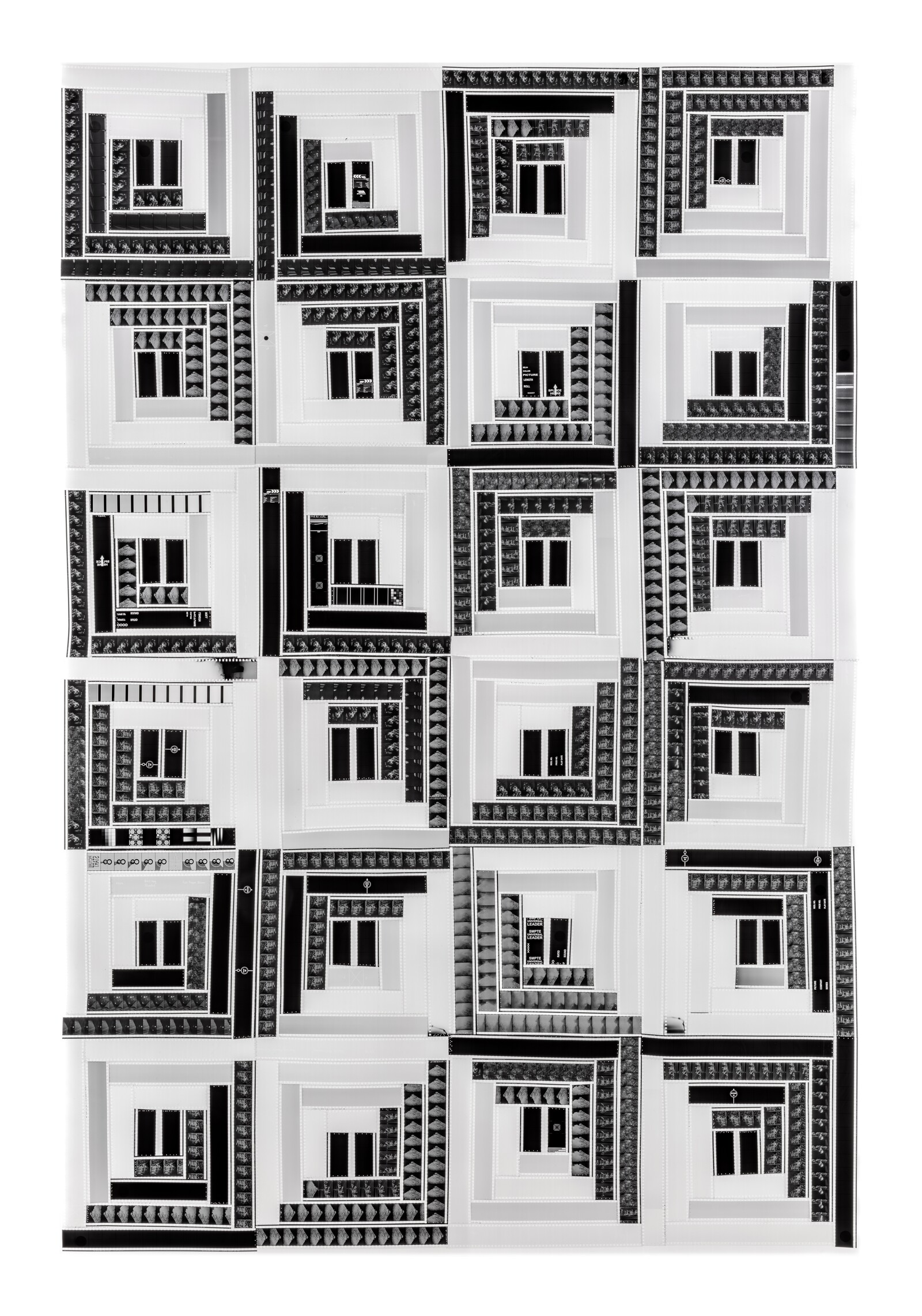Scarce Material
March 12–April 16, 2022
Shoshana Wayne Gallery is pleased to present Scarce Material by Sabrina Gschwandtner. This is the Los Angeles based artist’s third solo exhibition with the gallery. The exhibition will be on view from March 12 through April 16, 2022, with an opening reception on March 12 from 2–5pm.
For this exhibition, the artist looks back to the earliest iterations of the cinematic form, during the Silent Film era. Using black and white 35 mm film, video, silver gelatin photography, and fabric, Gschwandtner offers an alternative to the male-dominated history of film, and a literal mending and repairing of film history. “Scarce Material” refers both to a quilting term for anything that can be stitched together into a quilt, and to the archived early cinema made by pioneering women filmmakers that is in short supply.
The artist worked with local and international film archives over three years to source digital copies of some of the earliest films made by women cinema pioneers, whose work from the late 1800s–early 1900s is woefully under-recognized. She prints these movies onto black and white 35 mm film stock, and then cuts and sews the film into configurations based on quilt motifs. She intermingles footage to create a dialogue between the images inside the frames and the overall patterns of the quilt designs. The artist’s sewing of film is a three-dimensional form of cinematic editing and a reconfiguration of the notion of “filmic suture” (the use of editing to draw audiences into a story). It is also a way to center marginalized material histories of cinema, in which women with sewing skills translated their handcraft to film editing, and certain early film technology was based on the mechanical advancements of the sewing machine.
Many movies made by pioneering female filmmakers were never archived, and have been lost to history. To honor these works, the artist hand-embroiders filmmaker’s names and hand-writes the titles of their films and the dates the films were made onto blank film. The time she invested in handwork gives permanence and gravity to lost narratives by directors like Fatma Begum, India’s first woman director, who pioneered the fantasy genre in 1926, and Mimí Derba, a pioneering actress, writer and director from Mexico. Gschwandtner’s silver gelatin photos and video evoke cinema’s earliest origins in stop motion photography through a translation of moving images into patterns of women’s self-portraiture.
Gschwandtner has exhibited internationally at museums including the Victoria & Albert Museum; Los Angeles County Museum of Art (LACMA), Smithsonian American Art Museum, and Crystal Bridges Museum of American Art, among many others. Her three channel video “Screen Credit,” commissioned by LACMA, is currently on view at the museum’s Stark Bar. Her work is held in the permanent collections of LACMA, the Smithsonian American Art Museum; Museum of Fine Arts, Boston; the RISD Museum, and the Carl and Marilynn Thoma Art Foundation, among other public and private collections worldwide. Her ‘zine KnitKnit is included in the permanent collections of The Museum of Modern Art, the New York Public Library, the J. Paul Getty Museum, and the Fine Arts Library at Harvard University. She received a BA from Brown University and an MFA from Bard College.
The artist wishes to thank: EYE Filmmuseum, the Netherlands; Gaumont-Pathé Archives; British Film Archives; Kino Lorber; Academy of Motion Pictures Arts and Sciences Film Archive; Women Film Pioneers Project; Gregory Yee Mark; Suzan Mischer; Aimee Mann, and Maia Julis.




